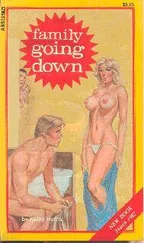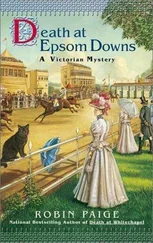“I’m Frida Eidinger…”
As Frida’s cutting replies cornered Gabriela and forced her to make up her mind, the two men who had loved the dead woman half-closed their eyes in gestures of tacit approval. The dialogue faithfully expressed Frida’s true character.
Gabriela suddenly got up from her seat.
“Wait,” she said. “I think my husband has woken up.”
She went to the hall door.
“I stopped here,” she clarified.
“Are you sure?” asked Ericourt.
Gabriela blushed.
“No, you’re right. I went to the bathroom.”
“To get the cyanide?”
“No, not that. I wanted to make sure Agustín was sleeping.”
“Fine, let’s carry on. What did you do then? What was señora Eidinger doing when you came back?”
“She was combing her hair. Then she reapplied her lipstick.”
“Did she say anything more?”
“Yes, she told me to think about what she’d said because she wasn’t prepared to back down.”
“Was that when she drank the glass of whisky?”
“Exactly. She was already getting up to leave. She suddenly grabbed the glass and drank it in one gulp. I realized she was pretending to be calmer than she actually felt.”
“Good, let’s reproduce the scene. Be precise in your movements. You, miss,” he added, addressing Betty, “will act as a woman readying to reapply her make-up. In the handbag you will find everything you need, nothing has been touched.”
He was aware that the attention everyone was paying him oscillated between irritation and mockery.
Betty, who had opened the dead woman’s handbag, took out the comb and smoothed her hair, then lifted the lipstick towards her mouth.
The standard lamp crashed to the floor. Someone had stood up brusquely and knocked it over. The incident was enough to make Betty pause with the lipstick hovering in front of her mouth.
“Don’t be alarmed.” It took Lahore a few seconds to realize it was Ericourt speaking. “Nothing will happen this time. We changed the lipstick in the laboratory. This one is not poisoned like the other one. You have given yourself up, señor Eidinger.”
Eidinger scanned the room as if looking for a way to escape. Moving just as quickly, two police officers immobilized him.
“The facts themselves complete the investigation.”
In a voice that was absolutely flat, as if his words had travelled a long way and emerged blurry with fatigue, Ericourt explained to Blasi the series of circumstances that led him to discover the author of the crime.
“I didn’t like Eidinger the first time we went to visit him. He fiercely guarded his modesty, which to me seemed like patched-up hypocrisy. But what could I accuse him of? Earlier events puzzled me and inclined my suspicions towards the Iñarra–Luchter pairing. I later regretted that. Luchter is a true fighter, a man who strives to raise himself through his own efforts, not trampling others or their feelings in the process. As for Soler,” he added disdainfully, “he’s a blank canvas. Remove the frame and there’s nothing left. Who could take him seriously?”
Blasi was listening carefully. Ericourt once more inspired confidence as a boss. He felt the relief of a child who is wholeheartedly convinced that his father’s self-possession is not a capricious desire to wield power, but in fact the product of deep-rooted convictions by which one may live.
“When I learnt about the existence of the poisoned lipstick,” Ericourt went on, “the circumstances led me to suspect Luchter. He might have disposed of the lipstick case along with the keys, counting on Soler not noticing and therefore not saying anything. Of course this was a risk, because it might have drawn attention to two elements that would have otherwise gone unnoticed. But there is always the possibility of a wrong move, and Luchter could well have made one.
“The fortuitous find of the poisoned lipstick ensured that reconstructing the scene of Frida’s death would lead us to the criminal. It was logical to suppose that whoever it was would be afraid to see Betty wielding the deadly lipstick and would be faced with a terrible dilemma: if Betty used it, her death would betray the way in which the first crime was committed; if either she or anyone present stopped the gesture, the act would be equivalent to a confession. Eidinger was in control of his nerves up until the last moment, but the very concentration of his energies provoked the reflex action that was his downfall. They won’t let me live this down,” he added, stretching his lips now in a rictus that on someone else would have been a smile. “Sensationalist is the gentlest adjective that has been applied to me. I must admit that I like a bit of sensation. My aesthetic instruction dates from the first decade of the century.
“The case of Frida Eidinger,” he went on almost without pause, “is one of a passionate obsession and its resulting resentment and devastation. Frida married Gustavo Eidinger for the sole purpose of leaving Europe and coming to Argentina, where Luchter had been living for some time. She was obsessed with the idea that only with him could she find happiness.
“But Gustavo Eidinger’s plans also depended on her. He needed his wife’s money to live the kind of life he considered essential. Divorce would be a disaster for him. Don’t forget that the marriage took place in Switzerland, at Frida’s request, and as such the dissolution of the marriage in any country allowing divorce would strip her husband of any right to a potential inheritance.
“Gustavo Eidinger acted like a spoilt child. He uses others but cannot bear the thought of being used himself. In the case of his marriage he could only tolerate failure while taking advantage of the external situation to convince himself that ‘everything had turned out well’. Can you imagine the effect Frida’s confessions must’ve had on him? His perfect plan was failing and he learned that someone else was, like him, capable of coldly using others. His spite swelled until it led him to plan his wife’s death.
“The two adversaries in this conflict were very similar. Husband and wife shared the same cynicism and unscrupulousness. Frida Eidinger was one of those women who spend their lives dealing out moral blows under the pretext of being frank, as an outlet for their aggressive instincts.
“What could she have done to more brutally hurt her husband? She simply announced her plan: she told him she would divorce him to marry Luchter. As if in a game of skittles, she wanted to knock down the last pin of Gustavo’s personal defences. Frida was a woman capable of twisting a chicken’s neck in front of a sensitive child and then saying it was to strengthen his character. We have somewhat forgotten the meaning of old words, but ferocity will continue to be the most appropriate.
“Eidinger knew Czerbó. His own wife must’ve told him about the advances he’d made as a chemist in Germany. The police report showed that Boris was an instructor for the student group of which Frida was a member. This explains his subsequent interest in getting hold of the photos.
“Eidinger got in touch with Czerbó. He needed a way to eliminate Frida without creating suspicions. Czerbó had managed to fix potassium cyanide in a solution that could be incorporated into the carmine used to make lipsticks and other materials. Eidinger suggested making a poisoned lipstick, which he then substituted for his wife’s. He had promised to pay a hefty sum when he inherited Frida’s estate.
“But the circumstances of the death complicated things. (Frida carried that lipstick in her handbag because she had another one on her dressing table.) Anywhere else, señora Eidinger’s death wouldn’t have caused any bother for her husband or for Czerbó. It would’ve been seen as a suicide and it wouldn’t have been difficult to get rid of the compromising lipstick. In Luchter’s apartment, it would’ve only caused problems for him.
Читать дальше












